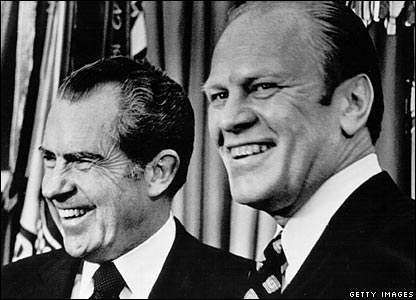
As my friend and Columbia colleague Niki Hemmer pointed out, regardless of what you think of Clinton herself, that’s a big effin deal: her nomination represents another step forward in a long struggle for equality and justice in America, one that runs from Abigail Adams’ “Remember the Ladies” to Seneca Falls in 1848 to the battle for suffrage and beyond. (While I harbor some reservations about Clinton, which we’ll get to in a moment — in short, #imwithher, but I really wish #shewasmorewithus — I was tickled to think of how ecstatically Jane Addams, Florence Kelley, Grace Abbott, and my other dissertoral compadres would’ve reacted to last night’s news.)
Whatever Clinton’s many faults, it’s long past time we caught up to the rest of the world and elected a woman to our highest office. This isn’t about tokenism: Studies have repeatedly shown that having more women in political office has a salutary impact on politics. When women — 51% of the population, but still only 20% of Congress — reach 30% of a governing body, new issues get an airing — issues like women’s health and America’s embarrassing lack of quality work and family policies. So, regardless of my own hesitations about Secretary Clinton, I do think her being our nominee — and, in a few months, our first woman president — will have a positive impact on the country, independent of anything else she accomplishes in office.
All that being said…Margaret Thatcher was a woman too, and look how that turned out. So let’s get to the problems here.

The signs of trouble were there from Clinton’s opening townhall in June 2014, when she came out of the gate arguing, among other things, paid maternity leave is just too gosh darn hard, Edward Snowden pals around with terrorists, I’ll let you know later where I stand on Keystone, I couldn’t come out against Iraq because I heart the troops etc. etc. From the start, Clinton emerged as the same triangulating centrist and unrepentant foreign policy hawk we saw in 2008.
Then, to knock out Bernie Sanders’ surprisingly strong progressive insurgency, Clinton resorted to many of the same sort of kitchen-sink, whatever-sticks attacks that made her so unappealing in 2008. So, for example, she tried to run on his Left and his Right at the same time: On one hand, she’s the “progressive who gets things done”…but, oh, by the way, single-payer is “never, ever” going to happen. Her campaign declared Bernie’s “tone” was unacceptable, all the while working mightily to slather him in the blood of Sandy Hook kids. (Remember: eight years ago, she was so absurdly pro-gun that Obama was calling her “Annie Oakley.”)
Meanwhile, Clinton publicly embraced Henry Kissinger, who really should be rotting in a jail somewhere, and showed no repentance for her hawkishness in Iraq, Libya, and around the world. (Trump’s disastrous temperament notwithstanding, that bizarre clip of Clinton’s luxuriating in Qaddafi’s demise doesn’t speak highly of hers either. Shades of her calling for Nader’s head back in 2000.) On Israel, she’s established a position to the right of Trump. As noted above, she’s derided single-payer as the Impossible Dream. She’s also now declared that huge campaign finance contributions aren’t in fact corrupting, which blows many progressive arguments against Citizens United out of the water.
In sum, she doesn’t seem particularly progressive for a “progressive that gets things done.” But, of course, we already knew this. It wasn’t like Clinton was any kind of progressive champion during her years in the Senate. Instead, she spent her time trying to criminalize flag-burning and tsk-tsking Grand Theft Auto with Joe Lieberman. (Before that, as we’ve all been reminded throughout this cycle, it was “superpredators” and welfare reform.) And now #we’re (stuck in the middle) #withher.
Moving on, one of the more annoying memes this season has been “zomg Bernie Bros!” — i.e. Clinton surrogates’ continual insistence that Bernie somehow invented Internet trolls, and is at best indifferent to, and at worst malevolently orchestrating, a marauding army of sexists that march under his banner. Firstly, anybody who’s Internetted over the years knows these asshats have been around since the CompuServe days — they’re a ubiquitous cancer of the Web, not a Bernie-inspired battalion. (Trust me, there’s some terribad Clintonistas out there also.) Second, in all honesty, the internecine Democratic fighting this year has been relatively tame compared to 2008, when Mark Penn was busy trying to “other” Obama into electoral oblivion. (Tho’ it probably seems worse to many more people Because Twitter.) And third, the only Democratic campaign that’s been documented as trying to weaponize trolling this cycle is Clinton’s, through David Brock’s brazen, FEC-flouting “Correct the Record” initiative.
Speaking of trolls, Clinton’s most hackish and obnoxious supporters in the media (Joan Walsh, Peter Daou, Jamil Smith, Amanda Marcotte, to name a few) have once again tried to wield sexism as both sword and shield, and argue that Bernie’s solely the candidate of angry white men. (This too is a holdover from 2008 — eight years ago, the kerfuffle was over “Obama Boys”.) But saying it doesn’t make it so. In fact, it takes a willful blindness, if not outright dishonesty, not to see where the Clinton/Bernie divide has really fallen in 2016.
Despite every attempt to make Bernie’s support primarily about race, sex, or income, all the polling has made it clear since before Iowa that the great chasm between Clinton and Sanders supporters is age. This pattern emerged in the earliest states and has held through until the end: Pre-California polling had Latinos under 50 breaking Sanders 2-to-1. America’s largest Arab community (in Michigan) also went 2-to-1 for Bernie, putting him over the top there (which, by the way, puts the lie to Michael Tomasky and others’ stupid contention that only privileged people back Bernie.) The African-American vote has been more closely split, but Bernie still won over half the under-30s nationwide. And women under 30 chose Bernie over Clinton by 30 points. In total, Bernie even beat out 2008 Obama among voters under 30.
There’s a lot of reasons for this, I think, many of which I talked about in my post about Obama’s youth support in 2008: “To many older liberals and progressives, who’ve experienced one dismal setback after another since the heydays of the New Frontier and Great Society, the Clintonian brand of cautious pragmatism often seems the only viable approach to moving the country forward. Put simply, you get burned enough times, you stop using the stove. This time, irony isn’t the shackles of youth, but of their parents.”
These trends have been compounded by the Great Recession and slow recovery since 2008. While Obama et al spent years fretting about the deficit, we failed an entire generation who graduated into a world of unpaid internships and few-to-no decent jobs. This has consequences. On one hand, more young people are living with their parents than living with a partner for the first time since 1880. On the other, the broken economic system and its attendants, like grotesque inequality, have made Millennials even more amenable to lefty policies and politics. Socialism isn’t the epithet the GOP (and DLC) would make of it anymore, and the left-wing of American social and political thought, which has been hacked off several times over the past century, is regenerating anew, and beginning to test its strength.
And that’s a good thing. It gives me great hope for the future. A stronger, more vibrant left means a wider Overton window, more progressive possibility, and an end to the learned helplessness and soft bigotry of low expectations that too many of today’s scared, insipid Democrats have tried to instill in voters. (“It’s not us! It’s Newt/Bush/Frist/Boehner/Trump!”) Bernie may have made some dumb arguments along the way, and these last campaign throes, as per the norm, aren’t looking pretty. (I’m with Favreau on this one: Gutting Bernie anonymously to Politico to set up your next gig is quintessential DC-asshole behavior.) But he pulled off something altogether amazing this year. Up against a “inevitable” candidate with every possible institutional advantage behind her, a 74-year-old Socialist still ended up winning 23 states(!)
Bernie may have come up short in the end. But, if nothing else, he’s put the Democratic Party on notice: A rising generation wants more from them from now on. The same tired GOP-lite camouflage, and a non-refundable, means-tested tax credit in every pot, aren’t going to get it done anymore. Let’s hope the next President is listening, and that she doesn’t take her left flank for granted.










